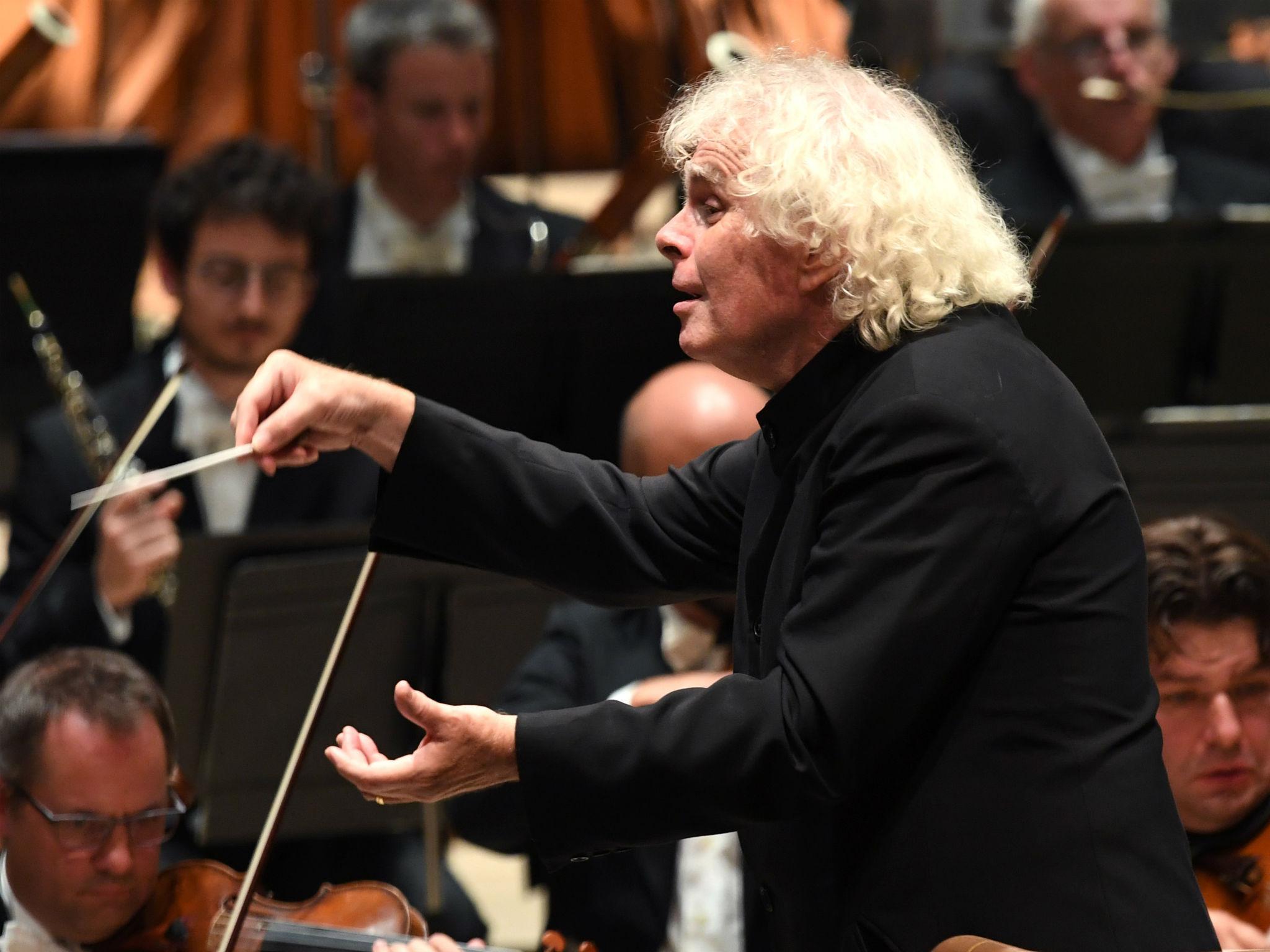This is Rattle, Barbican, London, review: Britain’s biggest-ever industrial push behind one single musician
A majestic opening concert celebrates the arrival of Sir Simon Rattle as music director of the London Symphony Orchestra and artist-in-association at the Barbican and Guildhall School of Music & Drama

Your support helps us to tell the story
From reproductive rights to climate change to Big Tech, The Independent is on the ground when the story is developing. Whether it's investigating the financials of Elon Musk's pro-Trump PAC or producing our latest documentary, 'The A Word', which shines a light on the American women fighting for reproductive rights, we know how important it is to parse out the facts from the messaging.
At such a critical moment in US history, we need reporters on the ground. Your donation allows us to keep sending journalists to speak to both sides of the story.
The Independent is trusted by Americans across the entire political spectrum. And unlike many other quality news outlets, we choose not to lock Americans out of our reporting and analysis with paywalls. We believe quality journalism should be available to everyone, paid for by those who can afford it.
Your support makes all the difference.This is Rattle represents Britain’s biggest-ever industrial push behind one single musician. For the arrival of Sir Simon Rattle means not only a hopefully reborn London Symphony Orchestra and a dreamed-of new concert hall, but also a celebration of British composers, and the (probably quixotic) vision of a musical renaissance for the country as a whole. It also indicates a political hope, in that Rattle is a passionately committed European: as Brexit tears Britain apart, it’s cultural leaders like this who may help limit the damage. The BBC has been plugging Rattle for weeks: too much hoo-ha can get in the way of the music, but once Rattle had picked up his baton the music spoke most eloquently for itself.
His opening programme was wall-to-wall British, drawing on living composers from four different generations, plus Elgar. The first piece was by the young Scottish composer Helen Grime, whose Fanfare had been commissioned for the occasion. Exuberantly colourful and displaying a real melodic gift, this five-minute work traversed a series of sound-worlds before ending in mid-phrase – appropriately, since this is theoretically the embryo of a larger work to come.
Then came Thomas Adès’s Asyla, which Rattle had premiered 20 years ago with the City of Birmingham Symphony Orchestra, and which in this rendering still exuded youthful freshness. Adès had researched techno club music for the crazy third movement of this symphony, which otherwise delicately delineates a space dominated by cowbells, high woodwind, and low brass; Rattle and the LSO made the most of its gleaming, gritty effects.
To follow this with Harrison Birtwistle’s Violin Concerto, with the German virtuoso Christian Tetzlaff in coruscating form, was to go back in spirit to the 19th century, in that – despite the unforgiving modernity of the idiom – soloist and orchestra (plus extra soloists emerging from the orchestra) converse passionately; Rattle’s teasing-out of this work’s mysteries was refined and judicious, as was his handling of the fourth work in the programme, Oliver Knussen’s compressed and majestic Symphony No 3. But Rattle’s master-stroke was to conclude with a performance of the Enigma Variations which had such visceral excitement that it felt absolutely new-minted. Welcome home, maestro.
Join our commenting forum
Join thought-provoking conversations, follow other Independent readers and see their replies
Comments